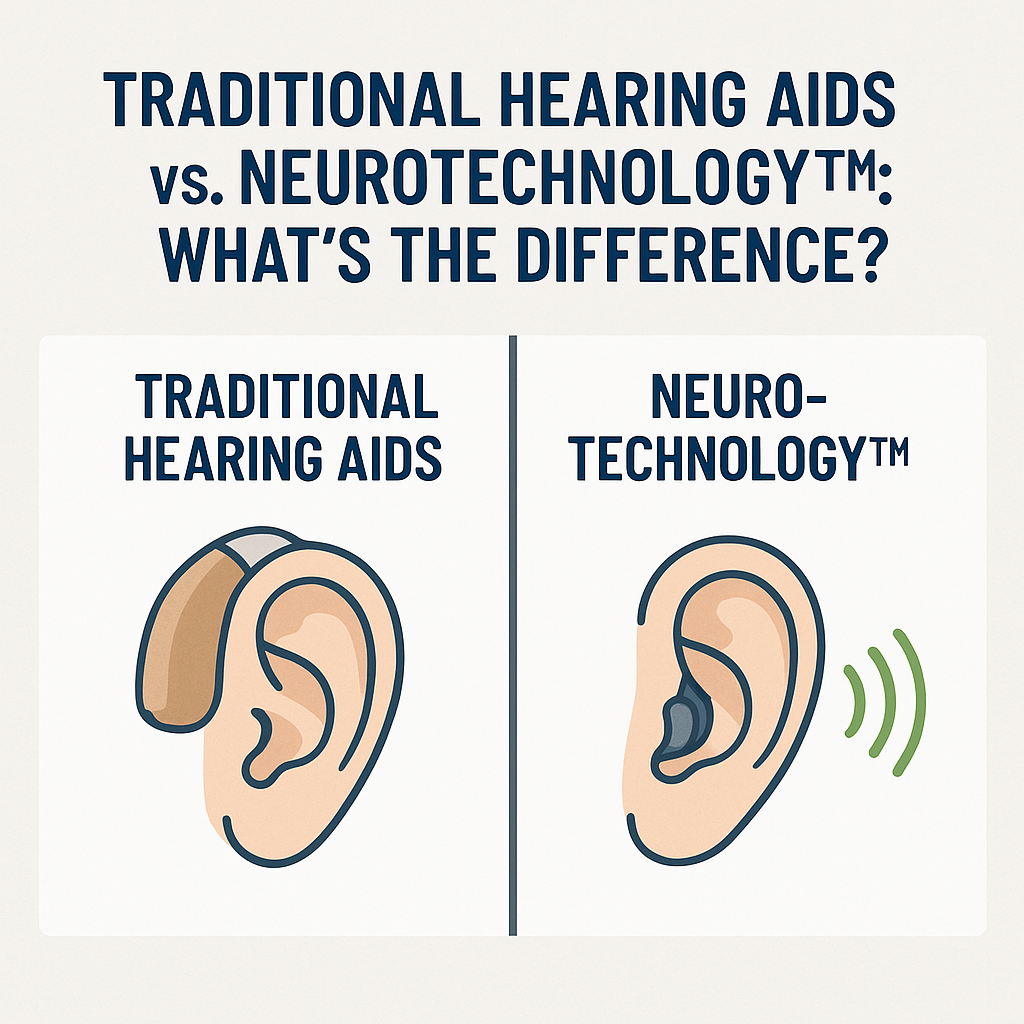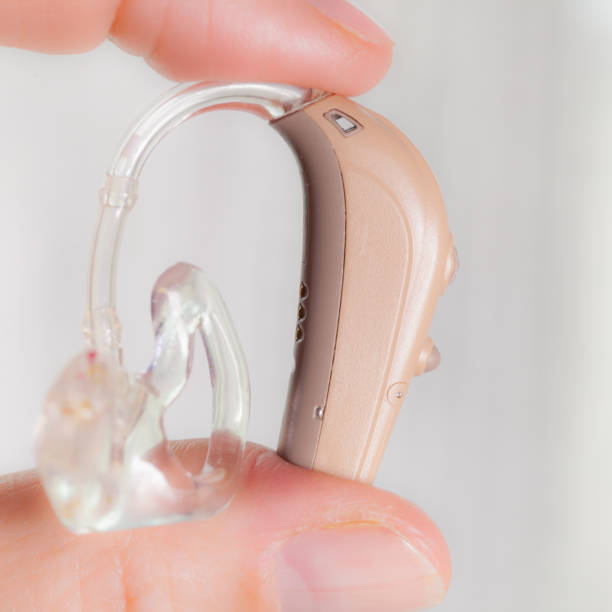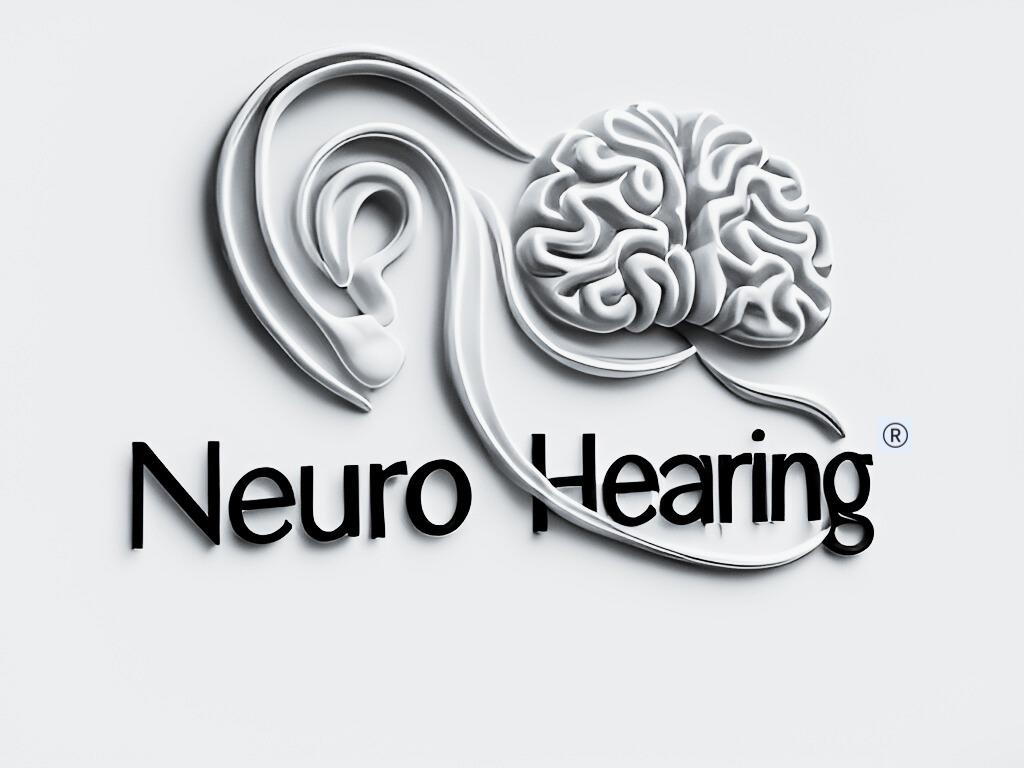Traditional Hearing Aids vs. NeuroTechnology™: What’s the Difference?
Hearing loss affects millions of people worldwide, but thanks to advancements in technology, there are now more effective solutions than ever before. While traditional hearing aids have been the go-to solution for decades, NeuroTechnology™ offers a more advanced, holistic approach to hearing restoration. But what exactly sets NeuroTechnology™ apart from traditional hearing aids? Let’s explore the key differences.

1. Basic Functionality: Amplification vs. Speech Clarity Restoration
Traditional Hearing Aids: These devices primarily amplify sound to help individuals with hearing loss detect speech and environmental noises.
However, they do not enhance speech clarity, which can make conversations in noisy environments challenging.
NeuroTechnology™: Unlike traditional hearing aids, NeuroTechnology™ devices are designed to restore speech clarity by processing sound in a way that aligns with the brain’s natural auditory function.
These devices don’t just make sounds louder; they optimize how speech is interpreted by the brain. Learn more about how hearing aids work.
2. Speech-in-Noise Performance
Traditional Hearing Aids: Many conventional hearing aids struggle in environments with background noise. They amplify all sounds equally, which can make it difficult for the user to distinguish speech from noise.
NeuroTechnology™: These devices utilize advanced algorithms and stimulation patterns that enhance speech recognition even in challenging listening environments, such as restaurants or crowded spaces. See how speech-in-noise testing is conducted.
3. Brain Training and Adaptability
Traditional Hearing Aids: Users often experience an adjustment period when using traditional hearing aids, as the brain needs time to adapt to the amplified sounds. However, they do not actively support brain retraining.
NeuroTechnology™: The treatment process includes gradual brain retraining. Adaptive programming starts with a lower amplification level and gradually increases over time, allowing the brain to adjust naturally.
This approach enhances neuroplasticity, helping the brain reorganize and form new connections for improved auditory processing. Learn about neuroplasticity in hearing.
4. Customization & Personalization
Traditional Hearing Aids: While many traditional hearing aids come with customizable settings, they are often limited in their ability to adapt to real-life hearing challenges dynamically.
NeuroTechnology™: These devices are highly personalized based on an individual’s specific hearing profile, lifestyle, and daily listening environments.
They are programmed to work seamlessly in various situations, ensuring optimal hearing across different settings. Find out about hearing aid customization.
5. Scientific Verification & Precision Fitting
Traditional Hearing Aids: Fitting a traditional hearing aid typically involves basic adjustments based on standard hearing tests.
NeuroTechnology™: Real-ear measurements and other objective assessments are used to ensure precise fitting.
This scientific verification ensures that users receive the exact amplification levels needed for their specific ear anatomy. Explore real-ear measurement techniques.
6. Long-Term Benefits & Support
Traditional Hearing Aids: While effective for basic amplification, they do not actively engage in long-term auditory rehabilitation.
NeuroTechnology™: This technology is integrated with ongoing support, including follow-ups, device maintenance, and continued auditory training, ensuring users experience long-term benefits and improved hearing health. Discover hearing loss treatments.
Conclusion
While traditional hearing aids have helped millions regain access to sound, NeuroTechnology™ represents the future of hearing solutions. By focusing on speech clarity, brain retraining, and personalized optimization, NeuroTechnology™ offers a more effective and comprehensive approach to hearing health. If you or a loved one is struggling with hearing loss, consider exploring how NeuroTechnology™ can make a life-changing difference. Book a consultation today.

